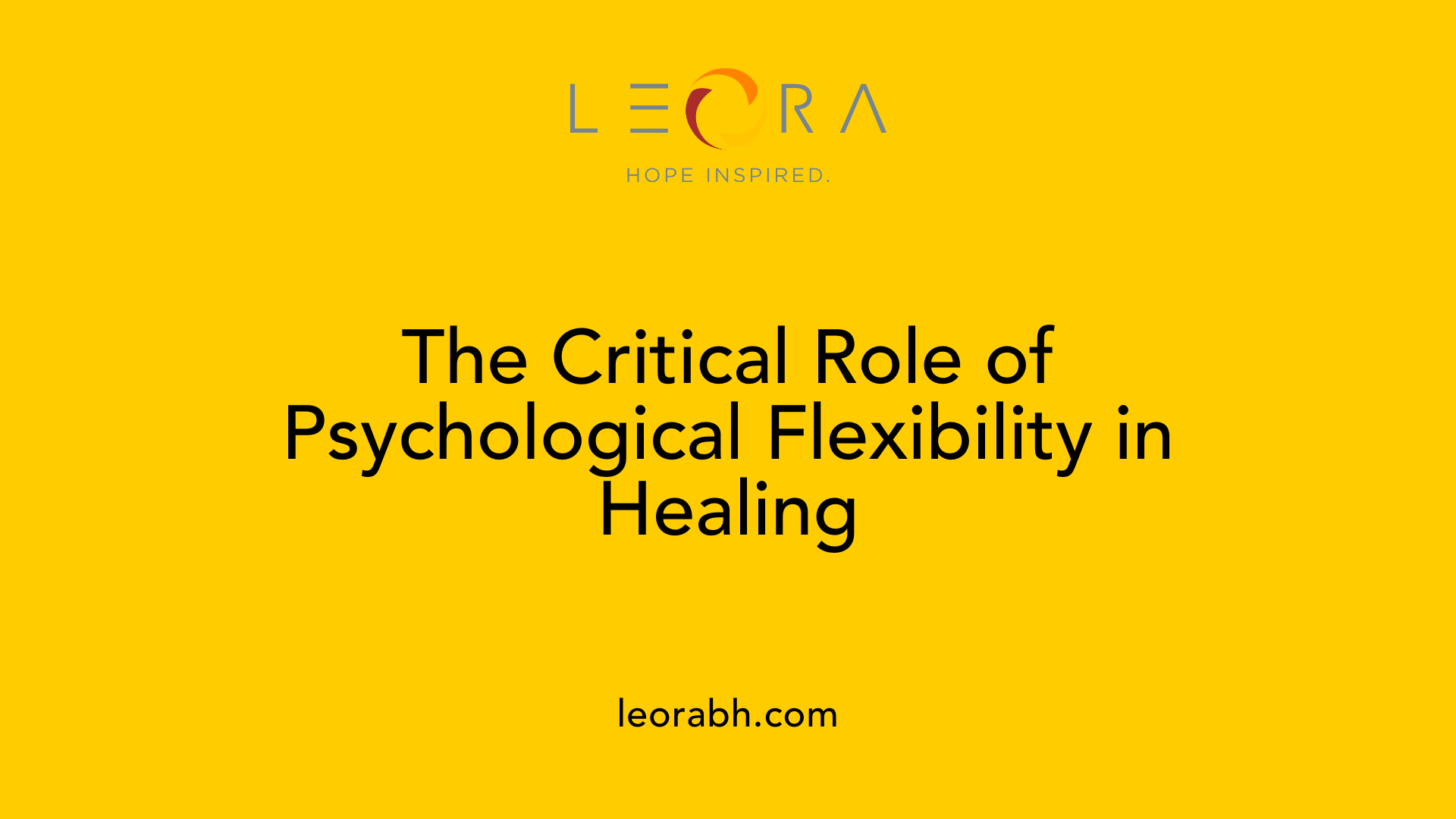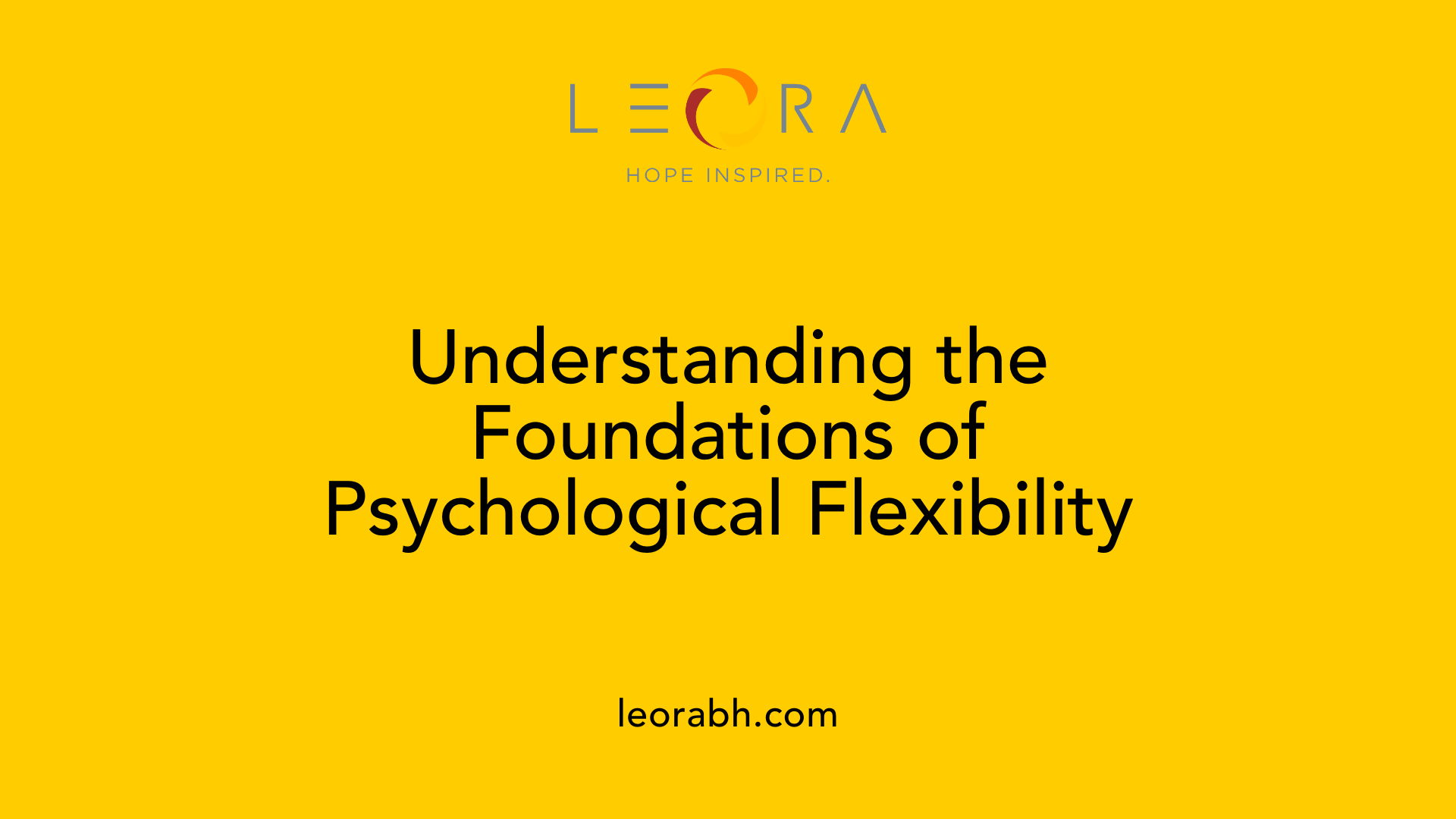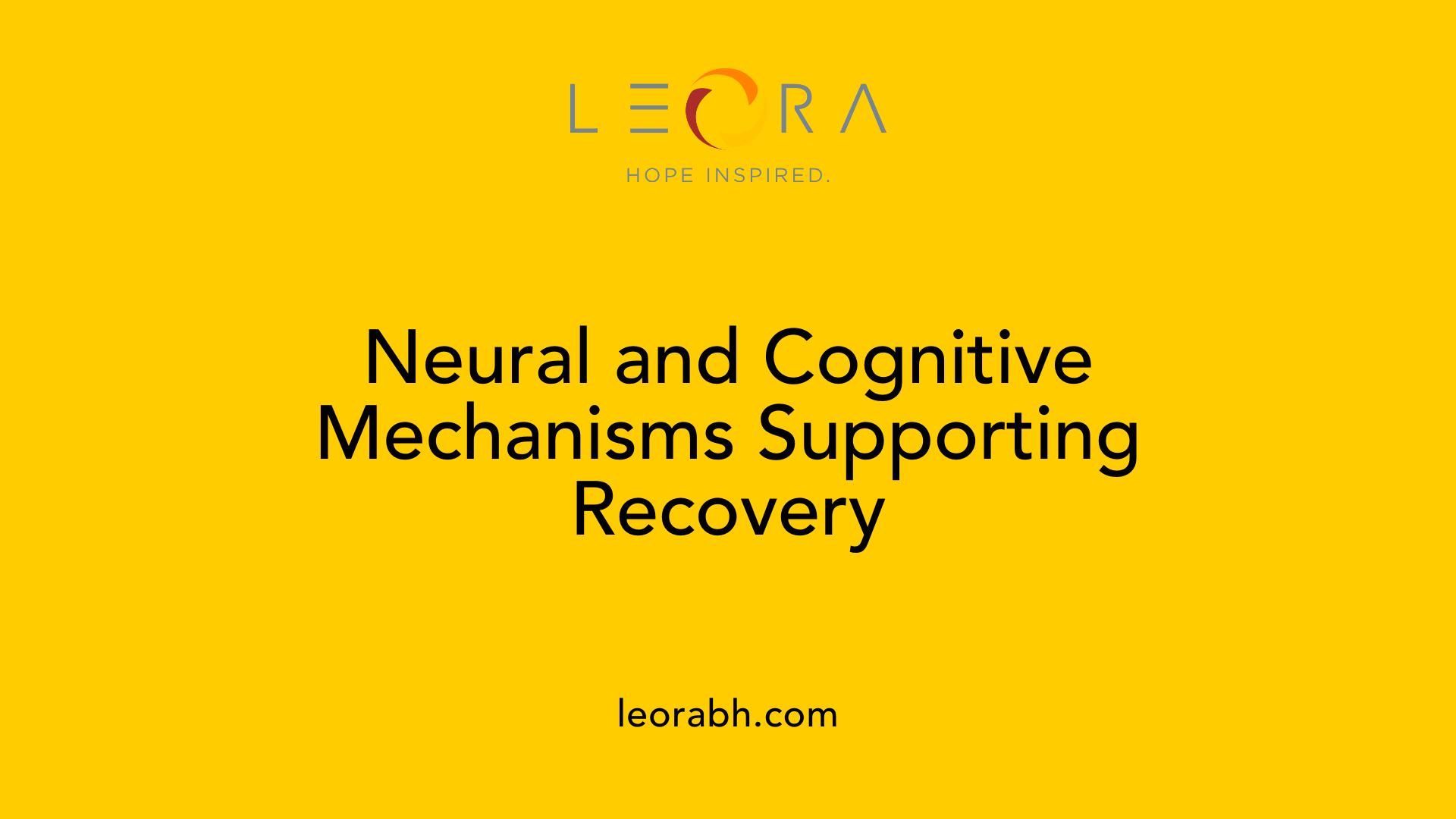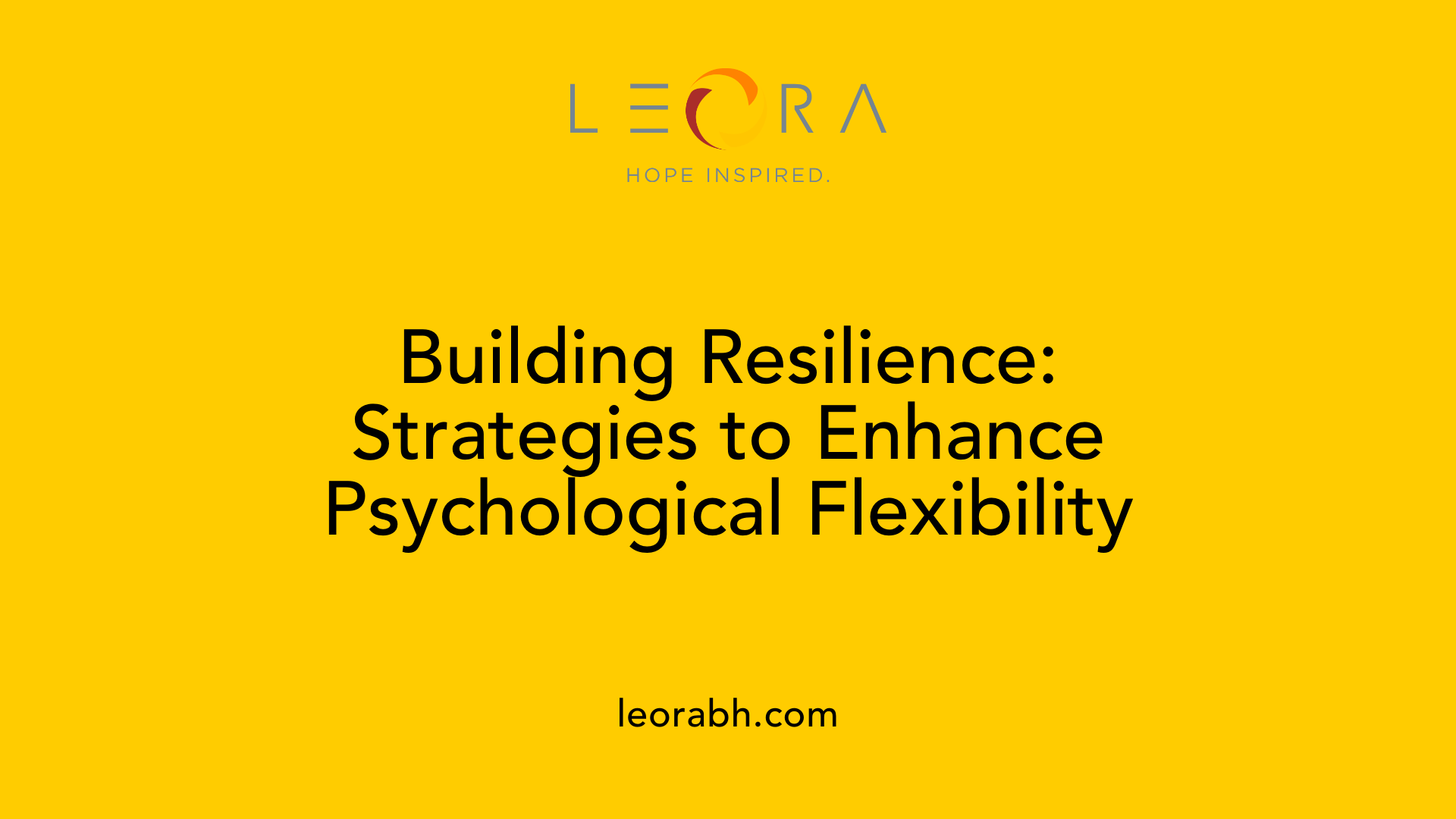Understanding psychological flexibility in recovery
Unlocking the Power of Flexibility in Healing
Navigating Recovery with Psychological Flexibility
Understanding the role of psychological flexibility in recovery offers promising avenues for enhancing healing across various health conditions. From traumatic injuries to chronic pain and mental health disorders, fostering this adaptive ability can significantly influence treatment outcomes, resilience, and overall well-being.
Defining Psychological Flexibility and Its Significance in Recovery
 What is psychological flexibility and why is it important for recovery?
What is psychological flexibility and why is it important for recovery?
Psychological flexibility is the capacity to adapt to changing internal and external circumstances while staying aligned with one's core values and goals. It involves being open to experiencing a range of thoughts and emotions without avoidance or excessive resistance, allowing individuals to adjust their behaviors in response to different situational demands.
Central components of psychological flexibility include acceptance of inner experiences, mindfulness—being aware of present-moment thoughts and feelings—and behavioral adjustments that help pursue valued life aims despite difficulties. This ability enables people to navigate stress, diminish unhelpful patterns like rumination, worry, or avoidance, and actively participate in meaningful activities.
Research shows that higher levels of psychological flexibility are associated with better mental health, improved emotional regulation, and resilience. For recovery following mild traumatic brain injury (mTBI), this trait helps individuals manage postconcussion symptoms, reduce psychological distress such as anxiety and depression, and regain functioning.
Importantly, interventions like Acceptance and Commitment Therapy (ACT) aim to enhance this flexibility, leading to positive health outcomes. As such, fostering psychological flexibility can be a crucial part of recovery strategies, enabling individuals to adapt to their new circumstances and rebuild a fulfilling life despite injury-related challenges.
The Impact of Psychological Flexibility on Mental Health and Treatment Outcomes

How does psychological flexibility influence mental health and treatment outcomes?
Psychological flexibility plays a vital role in mental health by helping individuals adapt to emotional and situational changes effectively. When people can accept difficult thoughts and feelings without avoidance, they are better equipped to manage conditions like depression, anxiety, and post-traumatic stress disorder (PTSD). High flexibility allows for greater resilience, enabling individuals to bounce back from setbacks and face stressors with adaptive strategies.
Research shows that psychological flexibility enhances emotion regulation and promotes behaviors aligned with personal values. This trait often leads to reduced symptoms in various mental health disorders, particularly those characterized by rigidity, rumination, worry, or behavioral perseveration. For example, in depression, increased flexibility has been linked to less hopelessness and more engagement in valued activities.
Interventions like Acceptance and Commitment Therapy (ACT) specifically target this mechanism. By cultivating acceptance, mindfulness, and value-based actions, these therapies improve treatment adherence and effectiveness. Patients who develop greater flexibility tend to follow treatment plans more consistently and experience faster symptom reduction.
Beyond individual therapy, fostering psychological flexibility in broader settings—such as schools and workplaces—can promote resilience across populations. Overall, this mental process supports wellness, reduces pathology, and enhances the capacity to navigate life's challenges, making it an essential component of effective mental health treatment.
Core Principles and Processes Underpinning Psychological Flexibility

What are the core principles and processes of psychological flexibility?
Psychological flexibility is a vital psychological trait that enables individuals to adaptively respond to life's challenges and pursue meaningful goals despite experiencing internal distress. According to Acceptance and Commitment Therapy (ACT), the approach most associated with fostering psychological flexibility, several core processes work in harmony to promote adaptive behavior.
These principles include acceptance, which involves openly embracing internal experiences such as thoughts, feelings, and bodily sensations without avoidance or judgment. This openness prevents individuals from becoming entangled in emotional reactivity that can hinder progress.
Cognitive defusion is another critical process; it encourages individuals to observe their thoughts as transient mental events rather than absolute truths. This perspective reduces over-attachment to unhelpful thoughts, enabling clearer decision-making.
Present-moment awareness directs attention to current experiences rather than ruminating on the past or anxiously anticipating the future. Cultivating mindfulness helps individuals respond more effectively to unfolding circumstances.
The self as context aspect involves understanding oneself as the observing consciousness that is separate from internal experiences and stories. This perspective fosters a more flexible view of identity that can adapt to changing situations.
Clarity of personal values entails identifying what matters most in life—such as relationships, health, or personal growth—and serving as a compass for behavior.
Finally, committed action involves taking purposeful steps aligned with one’s values, even when faced with discomfort or setbacks.
These processes do not operate in isolation but together form a comprehensive framework that reduces inflexibility—marked by experiential avoidance and rigid thought patterns—and promotes behaviors that are meaningful, adaptable, and aligned with one’s core values.
Overall, psychological flexibility serves as a cornerstone for mental health by enabling individuals to accept internal experiences while engaging in behaviors that foster well-being and personal growth.
Mechanisms and Neural Foundations of Psychological Flexibility in Recovery

What mechanisms underlie psychological flexibility in recovery processes?
Psychological flexibility plays a vital role in recovering from injuries and mental health issues by enabling individuals to adapt effectively to their circumstances. At its core, this flexibility involves recognizing and accepting inner experiences such as pain, distress, or negative thoughts without avoidance or resistance. Instead, it promotes actions aligned with one's personal values despite these challenges.
Several cognitive mechanisms support this process. Attentional control allows a person to focus on relevant stimuli and shift attention away from distressing thoughts or feelings when needed. Cognitive defusion helps in distancing oneself from unhelpful thoughts, viewing them as transient mental events rather than absolute truths. Emotion regulation skills enable individuals to manage emotional responses in a balanced manner, preventing overwhelming reactions.
Neurally, these mechanisms are supported by activity in prefrontal regions, which govern executive functions such as decision-making, planning, and attentional shifting. The limbic system, including areas like the amygdala, processes emotional responses. An effective interplay between these brain regions supports adaptive responses, ensuring reactions are flexible rather than rigid.
Evidence from neuroimaging studies shows that greater psychological flexibility is associated with increased activity in the prefrontal cortex and decreased reactivity in limbic areas during stressful situations. This neural pattern corresponds with improved emotional regulation, resilience, and functional recovery.
By fostering these cognitive and neural capacities, psychological flexibility encourages adaptive coping strategies. This reduces maladaptive behaviors like avoidance or rumination that can impede recovery. Consequently, interventions such as Acceptance and Commitment Therapy focus on strengthening these mechanisms to promote healing and health.
| Mechanism | Brain Region Involved | Effect on Recovery |
|---|---|---|
| Attentional control | Dorsolateral prefrontal cortex | Allows shifting focus, reducing fixation on pain or distress |
| Cognitive defusion | Prefrontal cortex | Facilitates distancing from unhelpful thoughts |
| Emotion regulation | Prefrontal cortex, limbic areas | Balances emotional responses, mitigates reactive behaviors |
This integration of cognitive functions and neural activity forms the foundation that supports adaptive responses, helping individuals navigate their recovery journeys with resilience and flexibility.
Practical Strategies and Future Directions in Enhancing Psychological Flexibility

What are practical ways to develop or enhance psychological flexibility during recovery?
Practicing mindfulness exercises helps individuals stay present and aware of their thoughts and feelings without judgment, which fosters acceptance and openness. Acceptance and Commitment Therapy (ACT) is a structured intervention that encourages acceptance of difficult inner experiences while committing to actions aligned with one's values.
Values clarification involves identifying what truly matters to the individual, providing purpose and motivation to pursue meaningful goals despite distress. Cognitive defusion techniques, part of ACT, help people observe their thoughts as mental events rather than facts, reducing their impact.
How can targeted interventions like ACT foster flexibility during recovery?
ACT aims to increase psychological flexibility by teaching skills that promote acceptance of inner discomfort, cognitive defusion, mindfulness, and values-driven behavior. During mTBI recovery, these skills enable individuals to adaptively respond to symptoms and setbacks, avoiding rigid thought patterns like rumination or avoidance.
Research indicates that ACT can lead to improvements in emotional regulation, reduce distress, and enhance functional outcomes. Its process-oriented approach makes it a promising tool for guiding patients through the complex journey of post-injury recovery.
What innovative therapies and personalized approaches promote adaptive responses?
Emerging therapies focus on tailoring strategies to individual needs, taking into account their specific values, goals, and psychological profiles. Personalized assessments, such as the newly developed Personalized Psychological Flexibility Index (PPFI), evaluate tendencies related to avoiding or accepting discomfort, helping clinicians design targeted interventions.
These approaches emphasize building resilience, emotional regulation, and the capacity to balance life demands, which are crucial for effective recovery. Combining mindfulness-based practices, acceptance techniques, and value-oriented exercises can cultivate a flexible mindset that supports both mental and physical healing.
| Strategy | Description | Benefits |
|---|---|---|
| Mindfulness | Staying present and aware without judgment | Reduces rumination, enhances emotional regulation |
| Acceptance (ACT) | Embracing inner experiences without attempts to control or avoid | Promotes adaptive responses to symptoms |
| Values Clarification | Identifying personal values to guide actions | Reinforces purpose and motivation |
| Cognitive Defusion | Observing thoughts as mental events rather than truths | Diminishes negative thought impact |
| Personalized Assessment | Tailoring interventions using tools like PPFI | Improves individual outcomes |
Developing psychological flexibility involves integrating these strategies into daily routines and therapeutic interventions. As research advances, more customized and effective approaches are anticipated, supporting individuals in their recovery journeys.
Embracing Flexibility for Better Recovery Outcomes
Cultivating psychological flexibility is a transformative approach that empowers individuals to navigate recovery with resilience, adaptability, and a focus on living in accordance with their deepest values. As research continues to uncover its mechanisms and optimize interventions, fostering this essential trait holds promise for enhancing treatment outcomes, reducing suffering, and promoting holistic well-being across diverse health conditions.
References
- The role of psychological flexibility in recovery following mild ...
- Psychological Flexibility as a Fundamental Aspect of Health - PMC
- A psychological mechanism that contributes to persistent symptoms ...
- (PDF) The Role of Psychological Flexibility in Recovery Following ...
- The role of psychological flexibility in post-traumatic adaptation
- The Role of Psychological Flexibility in Recovery Following Mild ...
- The Role of Psychological Flexibility and Inflexibility in Substance ...
- The Psychological Flexibility Model: A Basis for Integration and ...
Find Your Inner Light
Related Articles
Schedule an Assessment
Leora Behavioral Health provides comprehensive treatment services, including ambulatory detox, mental health IOP, and SUD IOP, to support your journey toward lasting recovery.
Our caring team will guide you through the admissions process and create a personalized treatment plan tailored to your unique needs. We welcome walk-ins. If you or a loved one is struggling, reach out today. We’re here to help.


.svg)




.svg)
.svg)
.svg)
.svg)
